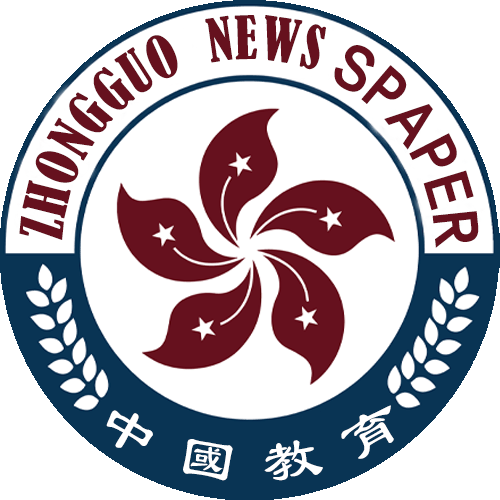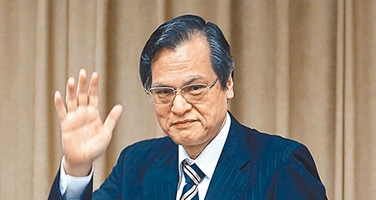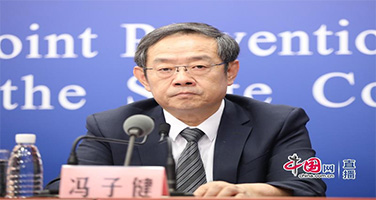ВЛИЯНИЕ ШКОЛЬНОЙ КУЛЬТУРЫ НА РАЗВИТИЕ ПРОЕКТНО-ОРИЕНТИРОВАННОЙ ДЕЯТЕЛЬНОСТИ УЧИТЕЛЯ: НА ПРИМЕРЕ НАЧ
ВЛИЯНИЕ ШКОЛЬНОЙ КУЛЬТУРЫ НА РАЗВИТИЕ ПРОЕКТНО-ОРИЕНТИРОВАННОЙ ДЕЯТЕЛЬНОСТИ УЧИТЕЛЯ:
НА ПРИМЕРЕ НАЧАЛЬНОЙ ШКОЛЫ ПРИ ТСИНГХУА УНИВЕРСИТЕТЕ
Ван Чуньлин
Казахский Кандидат наук, Казахский национальный университет
Факультет педагогики и управления образованием
Лю Кайхуанг
Казахский национальный университет имени Аль-Фараби, магистрант
кафедры педагогики и образовательного менеджмента
Цинь Цзыхао
Казахский национальный университет имени Аль-Фараби, магистрант
кафедры педагогики и образовательного менеджмента
Абстракт: Школьная культура, как душа развития образования, глубоко влияет на реализацию и инновации проектно-ориентированной деятельности учителей. Данное исследование берет в качестве примера Начальную школу При Цинхуа университете, анализирует, как ее уникальная школьная культура, характеризующаяся ценностными ориентирами, атмосферой сотрудничества, распределением ресурсов и структурой профессионального развития, способствует развитию инициативности учителей в проектной деятельности. Проведено критическое исследование таких вызовов, как ограничения традиционного преподавания, неравенство в рабочей нагрузке и разрыв в системе оценки. Для решения этих проблем предложены практически осуществимые стратегии, включая усиление профессиональной подготовки, оптимизацию распределения ресурсов и создание систематических механизмов оценки. Результаты исследования нацелены на предоставление идей для мировых образовательных учреждений, стремясь улучшить проектно-ориентированную деятельность, руководимую учителями, через культурную эмповеримент.
Ключевые слова: Школьная культура; Проектно-ориентированная деятельность учителей; Образовательная инновация; Начальная школа При Цинхуа университете.
THE INFLUENCE OF SCHOOL CULTURE ON THE DEVELOPMENT OF TEACHERS' PROJECT-BASED ACTIVITIES: A CASE STUDY OF TSINGHUA UNIVERSITY ELEMENTARY SCHOOL
Wang Chunling
AI-Farabi Kazakh National University, PhD student
Department of Pedagogy and Educational Management
Liu kaihuang
AI-Farabi Kazakh National University, Master student
Department of Pedagogy and Educational Management
Qin Zihao
AI-Farabi Kazakh National University, Master student
Department of Pedagogy and Educational Management
Abstract: School culture, as the soul of educational development, profoundly impacts the implementation and innovation of teachers' project-based activities. This study takes Tsinghua University Elementary School as an example to analyze how its unique school culture, characterized by value orientation, a collaborative atmosphere, resource allocation, and a professional development framework, promotes teachers' initiative in project-based activities. It conducts a critical study of challenges such as traditional teaching constraints, workload imbalances, and assessment system disparities. To address these issues, practical strategies are proposed, including enhancing training, optimizing resource allocation, and systematic assessment mechanisms. The research findings aim to provide insights for global educational institutions seeking to improve teacher-led project-based activities through cultural empowerment.
Keywords: School Culture; Teachers' Project-Based Activities; Educational Innovation; Tsinghua University Elementary School
Introduction
School culture serves as a vital component of school education, encompassing values, behavioral norms, campus atmosphere, and other dimensions. It not only shapes the spiritual outlook of teachers and students but also exerts a subtle influence on various educational and teaching activities within the school. Teachers' project-based activities are an important pathway for teachers' professional growth and improving teaching quality, and their development is closely related to school culture[1,c.78]. Tsinghua University Elementary School, with its profound cultural heritage and outstanding educational achievements, has a unique school culture that plays a significant leading and supportive role in the development of teachers' project-based activities.
1. The Connotation of School Culture at Tsinghua University Elementary School
The school culture of Tsinghua University Elementary School is rich and profound, with its value system, cultural traditions, and campus atmosphere collectively constituting a unique educational ecology. The school adheres to the educational philosophy of "Laying the Foundation for an Intelligent and Noble Life," emphasizing the cultivation of students' comprehensive qualities and paying attention to the dual development of intelligence and morality. This core value permeates the entire process of education and teaching, providing a clear direction for teachers' teaching work and project-based activities. At the same time, as a school with a long history, Tsinghua University Elementary School inherits the deep academic spirit and humanistic heritage of Tsinghua University, regarding the cultivation of innovative thinking and practical abilities as important educational goals and encouraging teachers to actively engage in diverse teaching explorations and project practices. On this basis, a positive, collaborative, and innovative atmosphere is cultivated within the campus, where teachers and students respect and learn from each other, forming a harmonious and symbiotic educational ecology. This cultural atmosphere not only stimulates teachers' professional enthusiasm but also provides fertile soil for the development of various project-based activities, enabling educational innovation to continuously deepen and develop in practice.
2. The Positive Impact of School Culture on the Development of Teachers' Project-Based Activities
School culture has a far-reaching positive impact on the development of teachers' project-based activities, mainly manifested in four key dimensions: goal orientation, environment creation, resource support, and professional development, which together constitute an ecosystem that promotes the conduct of teachers' project-based activities.
Firstly, the goal-oriented role is significant. The educational philosophy of "Laying the Foundation for an Intelligent and Noble Life" at Tsinghua University Elementary School provides a clear value guide for teachers' project-based activities. Under this guidance, the language group teachers designed the "Classics Immersion" reading project, selecting classics such as "The Analects" and "The Book of Songs" to cultivate students' humanistic heritage; simultaneously, they launched the "Creative Writing Workshop" project, guiding students to express the true, the good, and the beautiful through writing. These projects not only focus on knowledge transmission but also emphasize value shaping, achieving an organic unity of intellectual and moral education.
Secondly, the cultural atmosphere inspires innovation. The school has established measures such as a "Project Sharing Day" system and a "Teaching Innovation Award" to create a cultural atmosphere that encourages experimentation and tolerates failure. In this environment, teachers spontaneously form interdisciplinary project teams and develop special projects such as "Science in Poetry." The monthly "Project Coffee Bar" activities have become an important platform for teachers to exchange ideas and collide with thoughts.
Thirdly, resource allocation is precise and effective. The school has invested special funds to construct a project activity center, equipped with modern teaching aids such as 3D printers and virtual reality equipment. The library specially sets up a project resource area, collecting more than 5,000 project teaching reference books. In addition, the school has established an off-campus expert resource pool to provide professional support for teachers' projects, ensuring high-quality implementation of various projects.
Professional development has formed a system. The school has established a "Project Mentorship" training mode, pairing new teachers with project mentoring experts. By setting up a "Project Research Fund," it supports teachers in conducting action research. The annually organized "International Project-Based Teaching Summit" provides teachers with learning opportunities with a global perspective. These initiatives enable teachers to continuously enhance their professional abilities in project practice, forming a virtuous cycle of teaching and learning from each other.
3. Challenges Faced by the Development of Teachers' Project-Based Activities in the Context of School Culture
Although the development of teachers' project-based activities is supported and promoted within the school's cultural background, it still faces many challenges. Firstly, the shackles of traditional teaching concepts pose a major obstacle. Although the school advocates innovative teaching, some teachers are still constrained by the traditional teacher-centered teaching mode and hold a conservative attitude towards project-based activities. They are concerned that project-based activities may interfere with the teaching schedule and even affect students' test scores, leading to a lack of enthusiasm and initiative when participating. Secondly, teachers already bear heavy tasks in daily teaching, and conducting project-based activities requires additional time and energy. How to reasonably balance the time and resource allocation for project-based activities while ensuring normal teaching order has become an urgent problem to be solved. Finally, the imperfection of the project evaluation system further restricts development Teachers' project-based activities are an important pathway for teachers' professional growth and improving teaching quality, and their development is closely related to school culture[2,c.121]. The current evaluation criteria are not clear and specific enough, resulting in teachers lacking clear guidance when implementing projects and difficulty in accurately assessing the effectiveness and value of projects. These challenges work together to raise higher requirements for the in-depth development of teachers' project-based activities.
4. Optimization Strategies
(1) Strengthening Idea Propaganda and Training
The school should systematically conduct idea propaganda and training for teachers to ensure that every teacher can deeply understand and accept modern educational concepts. Regular special lectures can be held to invite education experts to share the latest research results and practical experiences of project-based learning, providing theoretical support and practical guidance for teachers[3,c.54]. At the same time, case analysis activities can be organized to allow teachers to conduct in-depth discussions on successful cases and problems in actual teaching, drawing lessons and experiences to enhance the ability to design and implement project-based activities. Furthermore, teachers are encouraged to observe each other's classrooms and exchange ideas on the design and implementation of project-based activities, jointly improving teaching quality and project-based activity quality through team collaboration. An online learning platform can also be established to provide rich teaching resources and training courses, allowing teachers to improve themselves anytime, anywhere. These measures can stimulate teachers' intrinsic motivation to participate in project-based activities and promote in-depth development of teaching reform.
(2) Rational Planning and Resource Allocation
Rational planning of teachers' teaching tasks and project-based activity arrangements is the key to ensuring the smooth progress of project-based activities. Teachers have heavy daily teaching tasks, and the time and energy for conducting project-based activities are limited. The school needs to scientifically adjust from two aspects: curriculum setting and teaching arrangement[4,c.124]. In terms of curriculum setting, professional teaching teams should organize to sort out existing curriculum content, streamline unnecessary links and repeated knowledge points to avoid redundancy. At the same time, relevant curriculum content should be added based on the needs of project-based activities and the actual situation of students to provide theoretical support. The teaching arrangement adopts flexible methods such as concentrated teaching and group cooperation, such as teaching theoretical courses in a concentrated manner to enable students to master systematic knowledge in a short time; practicing content through group cooperation to cultivate team collaboration and practical operation abilities. In terms of resource allocation, human, material, and financial resources should be integrated, a resource sharing platform should be established to promote teacher exchange and cooperation, and funds should be allocated reasonably to ensure sufficient equipment, materials, and other supplies for project-based activities. Through rational planning and resource allocation, teachers' teaching burden can be reduced, allowing them to invest more energy in project-based activities, improving their quality and effectiveness.
(3) Improving the Project Evaluation System
Establishing a scientific and reasonable project evaluation system is crucial for promoting the development of teachers' project-based activities. The current imperfect evaluation system affects the goal-oriented nature of teachers' project-based activities. The school should formulate clear evaluation standards and indicator systems, comprehensively evaluating from aspects such as project goal achievement, student participation, and teaching effectiveness. A combination of teacher self-evaluation, student evaluation, peer evaluation, and expert evaluation is adopted to ensure objective and fair evaluation. The evaluation results should be promptly fed back to teachers, not only pointing out problems but also providing improvement suggestions. The evaluation results should be linked to teachers' performance evaluations and title assessments to incentivize teachers to continuously optimize project-based activities and promote their sustainable development.
Conclusion
In summary, the school culture of Tsinghua Affiliated Primary School has played a positive role in promoting the development of teacher project activities, providing strong support for teachers in terms of goal orientation, atmosphere creation, resource support, and professional development. However, there are also some challenges in the development process that require schools to adopt corresponding optimization strategies to solve. By continuously improving school culture construction and optimizing project activity management, Tsinghua Affiliated Primary School can further enhance the quality and effectiveness of teacher project activities, provide better educational services for students' growth and development, and also provide valuable experience and reference for other schools.
Reference list
[1]Zhang, D. J. (2021). School culture construction: Where do we go after "crossing the concept jungle"?. Research on Education of Tsinghua University, 42(02), 41-47.
[2]Liu, Z. F. (2021). Three-dimensional dilemmas and breakthroughs of school culture. Contemporary Educational Science, (08), 3-11.
[3]Li, W. S. (2021). Project management in school educational reform.. Chinese Educational Journal, No.339(07), 62-66.
[4]Zhong, M. (2019). The creation of school culture. Unpublished doctoral dissertation, Nanjing Normal University, 101: 10.





